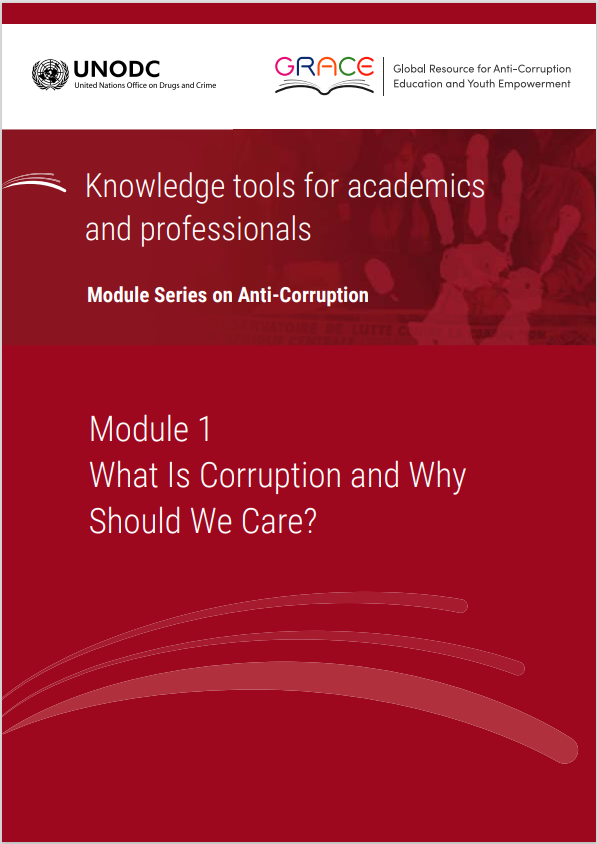This module is a resource for lecturers
Additional teaching tools
This section includes links to relevant teaching aides such as PowerPoint slides, video material and case studies, that could help the lecturer teach the issues covered by the Module. Lecturers can adapt the slides and other resources to their needs.
PowerPoint presentation
- Presentation on Module 1 (forthcoming)
Video material
- The Struggle against Corruption (2018). United Nations Office on Drugs and Crime (23 min). » This short film from UNODC brings together UN experts and academics to look at how corruption has manifested itself throughout history, what the implications have been, and how we can work together to counter this crime.
- Black Money (2009). PBS Learning Media (57 min). » In this video, investigative journalist Lowell Bergman examines the shadowy world of international bribery.
- Enron, The Smartest Guys in the Room (2005). Alex Gibney (1h 50min). » This is a documentary about the Enron corporation, its faulty and corrupt business practices, and how they led to its fall.
- Dark Money (2018). Kimberly Reed (1h 39min). » This is a political thriller, examining the influence of untraceable corporate money on elections and elected officials in the United States.
- What Is Corruption? (2017). Bonnie J. Palifka (14 min). » This video explains some definitions and provides examples of corruption.
- The Rise of the Super Rich (2013). Chrystia Freeland (15 min). » This TED talk on the rise of the super rich discusses the rise of a new class of plutocrats who are extremely powerful because they are extremely wealthy and how wealth promotes crony capitalism which controls the creation of favourable laws and outcomes for themselves.
Websites
- The Safra Center for Ethics at Havard University offers an online database on Institutional Corruption containing many open access articles and journals.
Other material
- KickBack: The Global Anti-Corruption Podcast. This podcast features regular interviews with leading experts in the anti-corruption field, from academia, politics, activism, journalism, etc. The podcast aims to enhance serious debate and discussion about important issues in the field from a variety of different perspectives. Given the length of each episode (average: 45 min), the lecturer may use it as a pre-class assignment.
 Next: Guidelines to develop a stand-alone course
Next: Guidelines to develop a stand-alone course
 Back to top
Back to top
